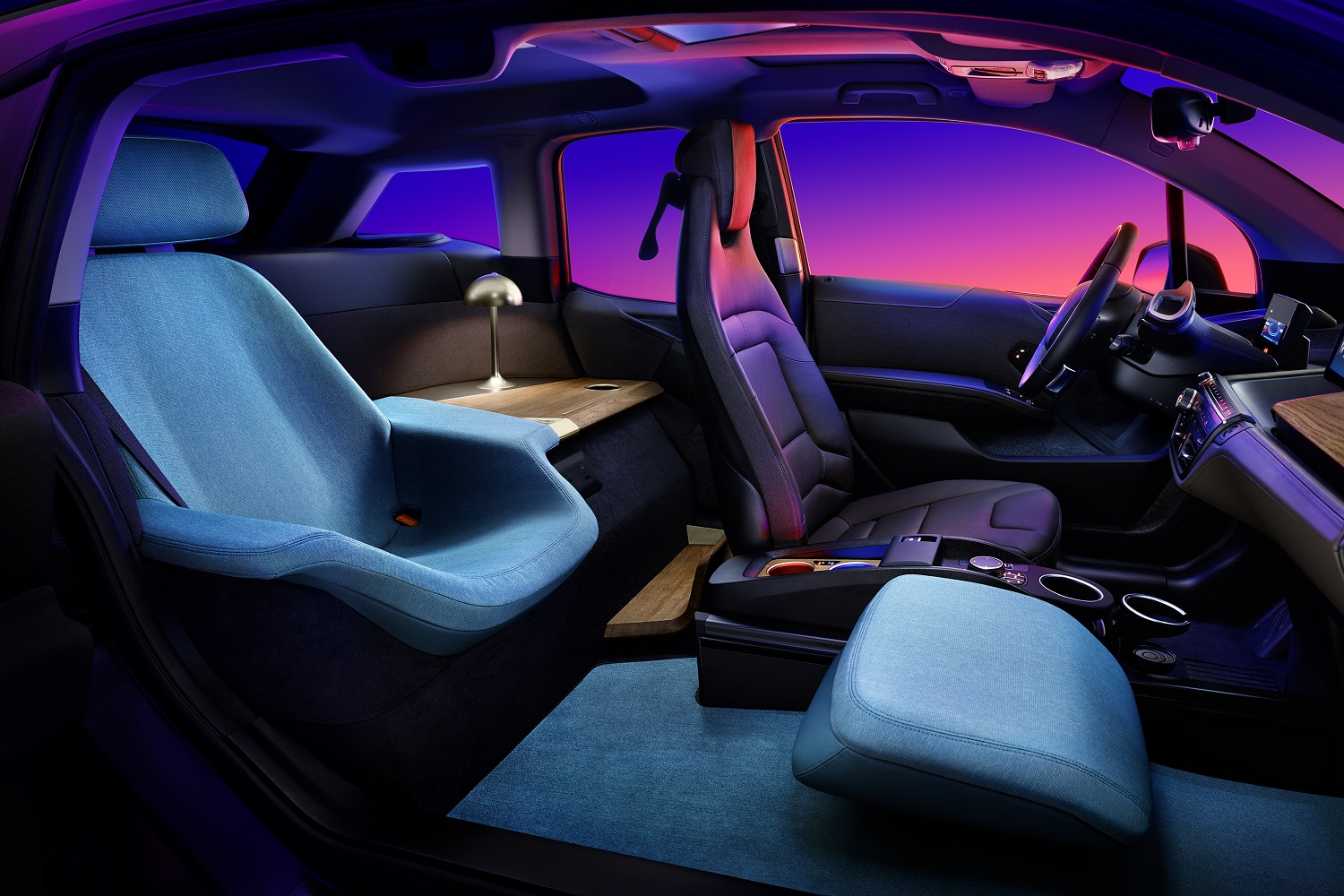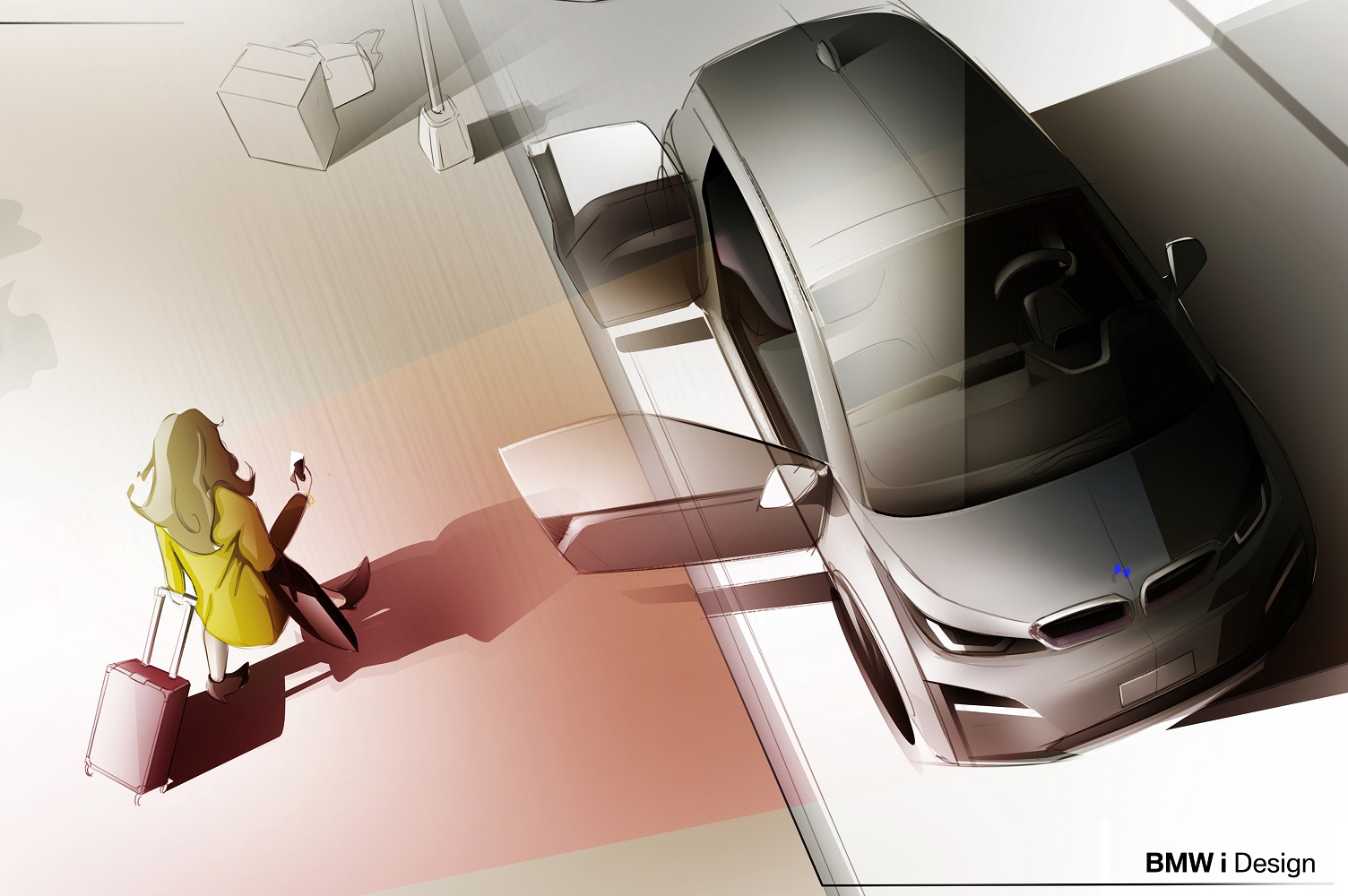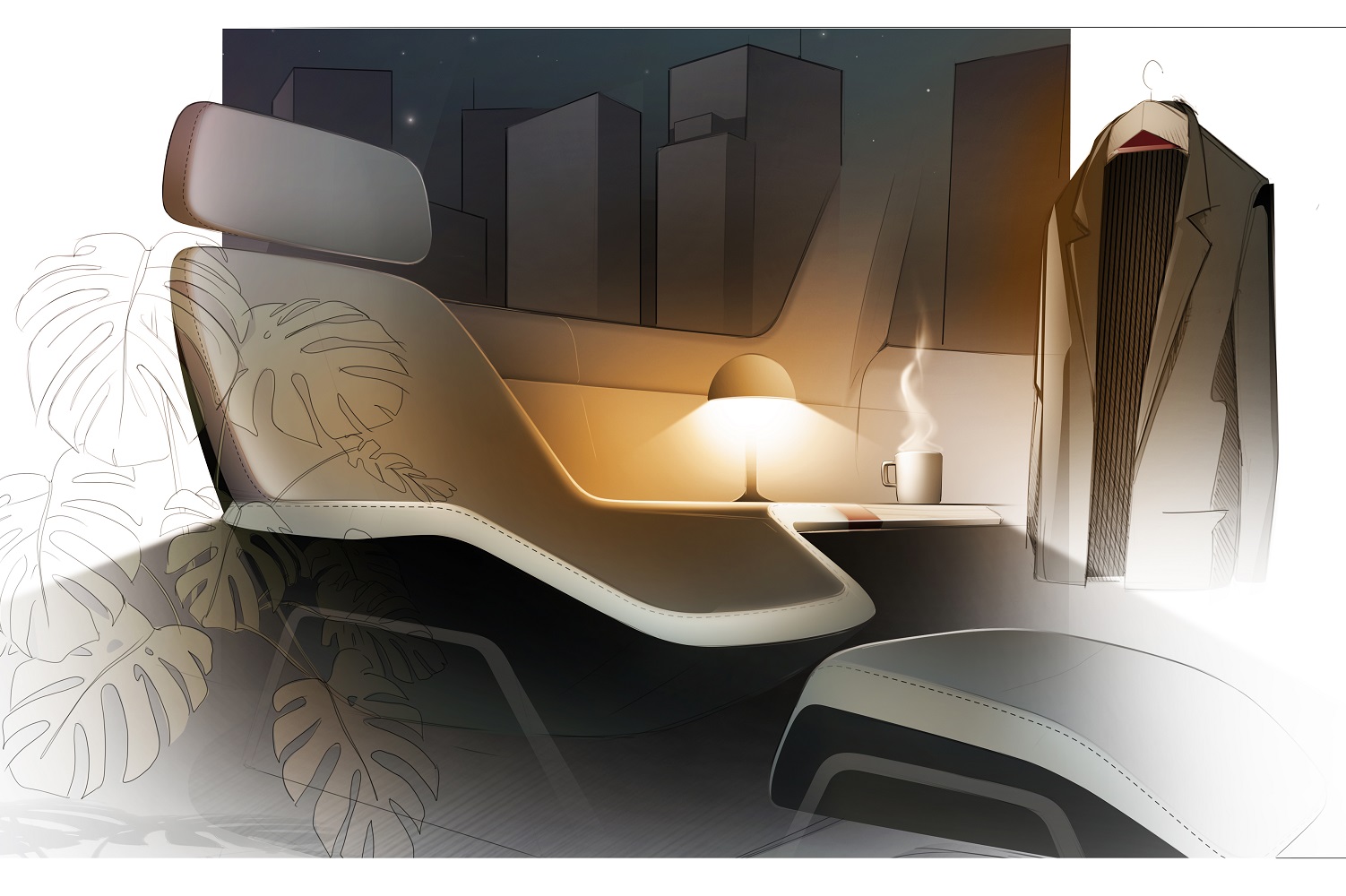There are far better places to sleep in than a city car; they’re cramped, poorly isolated, and not nearly as comfortable as a mattress. And yet, at CES 2020, BMW will showcase a concept named i3 Urban Suite that will make you wish for the opportunity to spend a night on the streets of New York City. It’s half electric car, half boutique hotel.
The Urban Suite started life as a regular i3, a funky electric car that still looks like it comes from the future in spite of its age. Viewed from the outside, it looks like a regular production model with the exception of a concept-specific wrap. The story is different inside, where BMW kept only the dashboard and the driver’s seat, and sent the rest of the interior back to the parts bin. An individual, sofa-like rear seat and wooden table replace the rear bench, while a footrest fills the space normally occupied by the front passenger seat. The company explained it wanted to create a cozy, feel-good atmosphere.
Recycled materials reign supreme in the Urban Suite. Take the floor mats, for example. They’re designed to be fed back into the materials cycle, so in 20 years they might reincarnate into fishing nets, playground equipment for kids, or something else entirely. Olive-tanned leather also plays a starring role inside the concept, and the miniature desk next to the rear seat is made from sustainably sourced wood. It almost sounds old-school, but there’s plenty of tech including a screen that folds into the headliner when it’s not needed, and what the company calls a personal sound zone.
It doesn’t sound like BMW made modifications to the i3’s powertrain. Built around a futuristic carbon fiber shell, the model is powered by a 42-kilowatt-hour lithium-ion battery pack that channels electricity to a 170-horsepower electric motor mounted over the rear axle. It’s reasonably quick off the line, and it can travel for about 150 miles on a single charge.
BMW will deploy a fleet of i3 Urban Suites on the streets of Las Vegas during CES 2020. Visitors wishing to experience the car in person will be able to hail one using a special app developed specifically for the occasion. There’s no word yet on whether the company will charge for a ride; we’ve asked, and we’ll update this story if we learn more.
The i3 Urban Suite will be one of the stars of BMW’s display at CES 2020, but there’s little indication it will reach mass production. On a more realistic note, the company will show how it’s integrating wireless Android Auto — a software it spent years resisting — into its infotainment system, its digital instrument cluster, and its head-up display.









